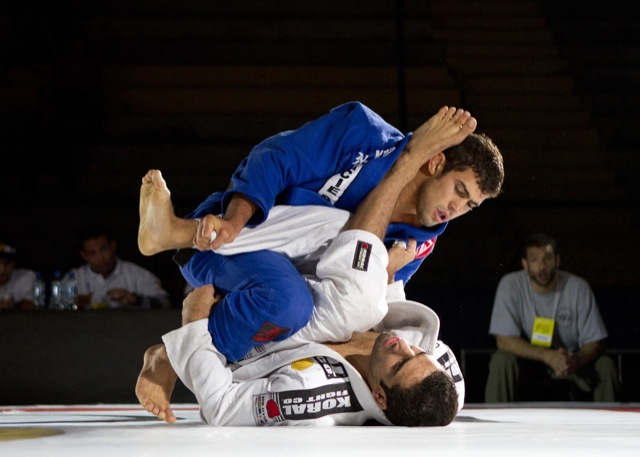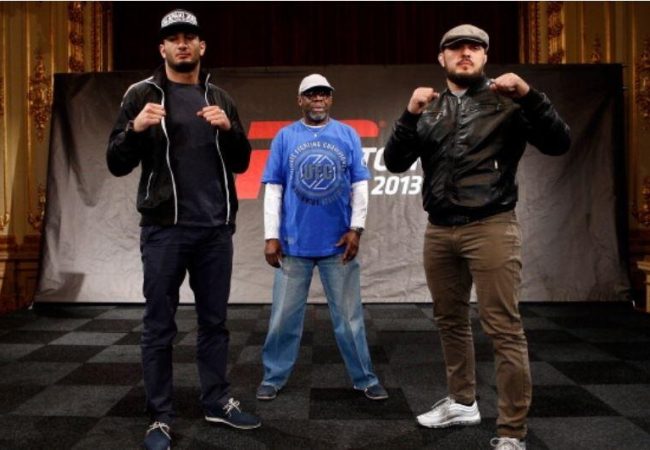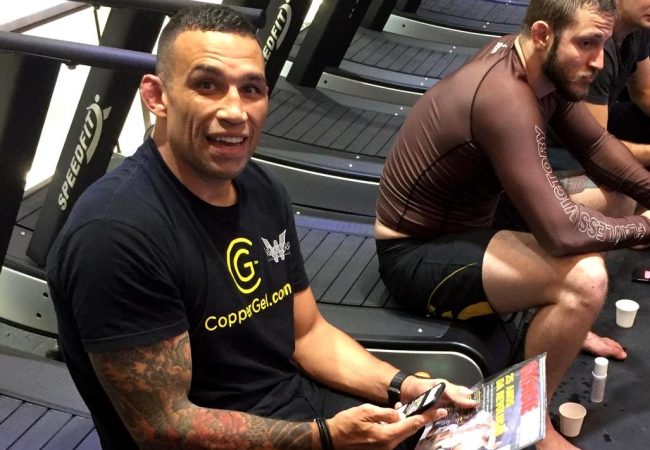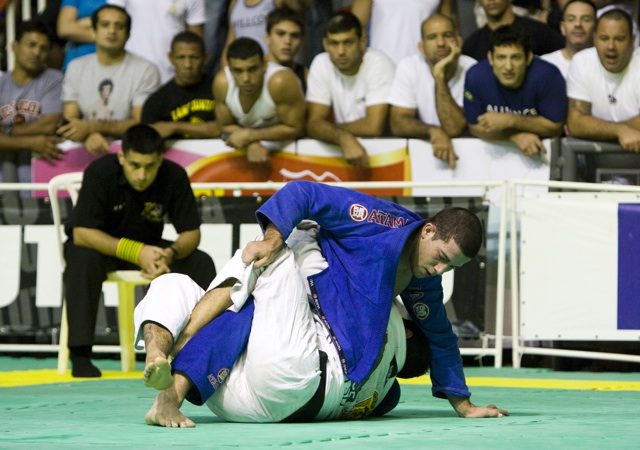
Clean nails and feet, as you can see, are essential in Jiu-Jitsu. Photo: Graciemag.com
*In Jiu-Jitsu, as with any martial art, training generally takes place in an indoor environment, with plenty of physical contact, heat and sweat. Jiu-Jitsu, by and large, is practiced by healthy people. Nevertheless, besides being healthy, practitioners have to be meticulous in tending to their personal hygiene.
First, they need to get a full health assessment by having a good medical check-up, and that includes with a cardiologist, since recent events in soccer and volleyball have shown us even young athletes can have heart problems when performing prolonged exertion. Once you’ve undergone a good medical evaluation, training will be a good deal safer for you and the teacher.
As for hygiene, anyone who trains on a regular basis will now and again encounter a training partner whose gi reeks, whose fingernails and feet are filthy, who doesn’t take the trouble to care for their personal hygiene. In some instances, a mat mate is visibly suffering from a cold or is sick. These problems aren’t just unpleasant; they’re a health hazard to everyone else training in the same environment.
If you train on a regular basis you should have at least two gis, since gi fabric is heavy and takes a long time to dry. The stench could come from the gi not having been properly washed, but it could also come from the gi being damp, not having been fully dried. It’s in precisely these moist conditions where fungi and bacteria thrive and multiply.
If you’ve come down with the flu or some virus, keep in mind that by training you might end up spreading the illness to everyone else at the Jiu-Jitsu school, even to those who don’t come in physical contact with you. Disease doesn’t spread only by air, but by cross infection, whereby the virus is communicated directly to a colleague, who then passes it on to a third person with whom he has contact. Often even the teacher isn’t spared. That being the case, infirm athletes shouldn’t take part in collective training. When in doubt, consult a doctor to find out whether it’s all right to train with others.
You need to be conscientious, because it isn’t easy for a teacher to keep tabs on the health and hygiene of all his students. Mat mates can help by giving a “nudge in the right direction” to anyone who repeatedly neglects to take proper care of themselves or uses an unserviceable gi. After all, Jiu-Jitsu is synonymous with health.
*Dr Carlos Augusto de Mattos is the head of the sports traumatology and arthroscopy department at PUC University in Campinas and a member of the Brazilian societies of orthopedics and traumatology.



